Writing for Psychology International Edition 4th Edition by Mark L. Mitchell – Test Bank
Chapter 1—What is Psychology?
MULTIPLE CHOICE
1.The word psychology was derived from the Greek words psyche, meaning __________, and logos, meaning __________.
|
A. |
mind…body |
|
B. |
word…study |
|
C. |
normal…abnormal |
|
D. |
mind…word |
ANS:DREF:introductionOBJ:remembering
2.When asked a general question, a psychologist might reply, “It depends.” Why?
|
A. |
So far, psychologists just don’t know very much. |
|
B. |
Few statements about psychology apply to all people, all the time. |
|
C. |
A psychologist wants to hear your answer first. |
|
D. |
The psychologist is stalling for time while thinking of an answer. |
ANS:BREF:general points
OBJ: application and understanding
3.According to one study, what was the effect of holding a hot cup of coffee?
|
A. |
People were quicker to become angry. |
|
B. |
People became more likely to rate someone’s personality as “warm.” |
|
C. |
People became more interested in a trip to a tropical country. |
|
D. |
People were able to answer correctly more questions about food and drinks. |
ANS: B REF: general points OBJ: remembering
4.According to one study, what was the effect of red-letter instructions on the first page of a test?
|
A. |
On average, students became more alert and attentive. |
|
B. |
On average, students finished the test more quickly. |
|
C. |
On average, students erased and changed more of their answers. |
|
D. |
On average, students got lower test scores. |
ANS: D REF: general points OBJ: remembering
5.Why have psychologists made more progress in understanding sensation than emotion?
|
A. |
It is easier to make accurate measurements in sensation. |
|
B. |
Psychologists find sensation more interesting. |
|
C. |
Research on emotion is more expensive. |
|
D. |
The answers concerning emotion are so obvious that no research is necessary. |
ANS:AREF:general points
OBJ: application and understanding
6.According to the position known as determinism,
|
A. |
after doing something, a person has an urge to engage in the opposite behavior. |
|
B. |
people can choose for themselves what kind of people they want to be. |
|
C. |
behavioral development depends equally on heredity and environment. |
|
D. |
behavior follows principles of cause and effect. |
ANS: D REF: determinism OBJ: remembering (definition)
7.The philosophical position that every behavior has a cause is known as
|
A. |
free will. |
|
B. |
determinism. |
|
C. |
hereditarianism. |
|
D. |
environmentalism. |
ANS: B REF: determinism OBJ: remembering (definition)
8.What is meant by “determinism”?
|
A. |
assumption that every event has a cause |
|
B. |
personality trait marked by persistence and effort |
|
C. |
belief that behavior is caused by a person’s conscious decisions |
|
D. |
view that conscious experience is inseparable from the physical brain |
ANS: A REF: determinism OBJ: remembering (definition)
9.Someone who believes that all behaviors have a cause follows which philosophical position?
|
A. |
hereditarianism |
|
B. |
environmentalism |
|
C. |
free will |
|
D. |
determinism |
ANS: D REF: determinism OBJ: remembering (definition)
10.Which of these refers to the idea that every event, including our behavior, has a cause?
|
A. |
determinism |
|
B. |
parsimony |
|
C. |
synesthesia |
|
D. |
replicability |
ANS: B REF: determinism OBJ: remembering (definition)
11.People who support the concept of free will believe that
|
A. |
heredity plays a critical role in the development of behavior. |
|
B. |
some choices go beyond the realm that science could study or predict. |
|
C. |
different parts of the brain control different types of behavior. |
|
D. |
behavior is basically predictable. |
ANS: B REF: determinism OBJ: remembering (definition)
12.People who support the idea of free will OPPOSE the concept that
|
A. |
the mind and brain are separate entities. |
|
B. |
people can sometimes change their opinions. |
|
C. |
all behaviors have causes that scientists can study. |
|
D. |
people have a conscious mind. |
ANS: C REF: determinism OBJ: application and understanding
13.Someone who supports the position of determinism (as opposed to free will) believes that
|
A. |
people can change their own behavior if they try hard enough. |
|
B. |
the development of behavior depends more on the environment than on genetics. |
|
C. |
every behavior has a cause. |
|
D. |
the only way to find out why people act as they do is simply to ask them. |
ANS: C REF: determinism OBJ: application and understanding
14.Adherents of free will disagree with adherents of determinism with regard to whether behavior is
|
A. |
useful |
|
B. |
inherited. |
|
C. |
persistent. |
|
D. |
predictable. |
ANS: D REF: determinism OBJ: application and understanding
15.A psychologist who attempts to test the assumptions of determinism is most likely to investigate
|
A. |
the role of heredity in the development of behavior. |
|
B. |
whether it is possible to predict behaviors. |
|
C. |
whether different parts of the brain have different functions in behavior. |
|
D. |
why certain people work harder to achieve their goals than other people do. |
ANS: B REF: determinism OBJ: application and understanding



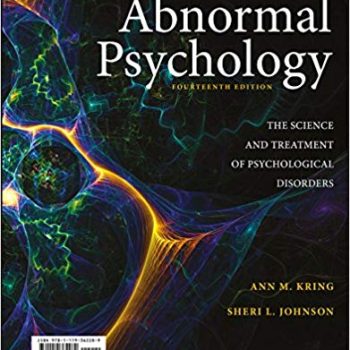
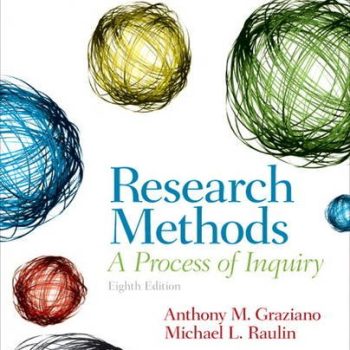

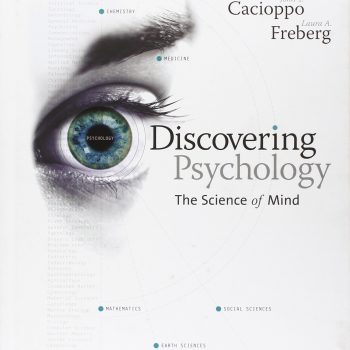
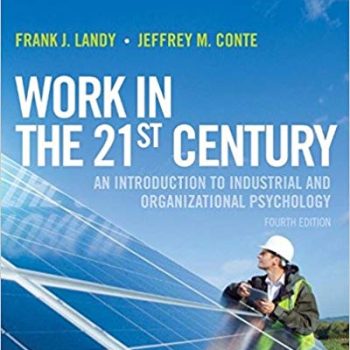
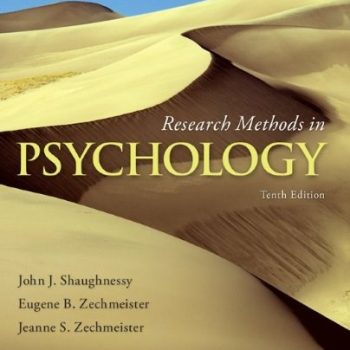
Reviews
There are no reviews yet.